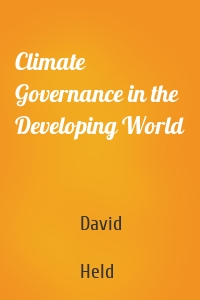David Held
4 кн.
Cosmopolitanism. Ideals and Realiti...
This book sets out the case for a cosmopolitan approach to contemporary global politics. It presents a systematic theory of cosmopolitanism, explicating its core principles and justifications, and examines the role many of these principles have played in the development of global politics, such as framing the human rights regime. The framework is then used to address some of the most pressing issues of our time: the crisis of financial markets, climate change and the fallout from the wars in...
| Автор | David Held |
Gridlock
The issues that increasingly dominate the 21st century cannot be solved by any single country acting alone, no matter how powerful. To manage the global economy, prevent runaway environmental destruction, reign in nuclear proliferation, or confront other global challenges, we must cooperate. But at the same time, our tools for global policymaking – chiefly state-to-state negotiations over treaties and international institutions – have broken down. The result is gridlock, which manifests across...
| Автор | David Held |
Climate Governance in the Developin...
Since 2009, a diverse group of developing states that includes China, Brazil, Ethiopia and Costa Rica has been advancing unprecedented pledges to mitigate greenhouse gas emissions, offering new, unexpected signs of climate leadership. Some scholars have gone so far as to argue that these targets are now even more ambitious than those put forward by their wealthier counterparts. But what really lies behind these new pledges? What actions are being taken to meet them? And what stumbling blocks lie...
| Автор | David Held |
Debating Globalization
Debating Globalization is a short, accessible introduction to the debate about globalization written by many of the most prominent figures in the field. Published by Polity in association with openDemocracy, the book is notable not just for focusing on the pressing difficulties facing our world, but also on solutions. Rich and positive suggestions are made for reshaping globalization into a force that will work for humans everywhere. In an extended analysis, David Held provides a robust critique...
| Автор | David Held |





